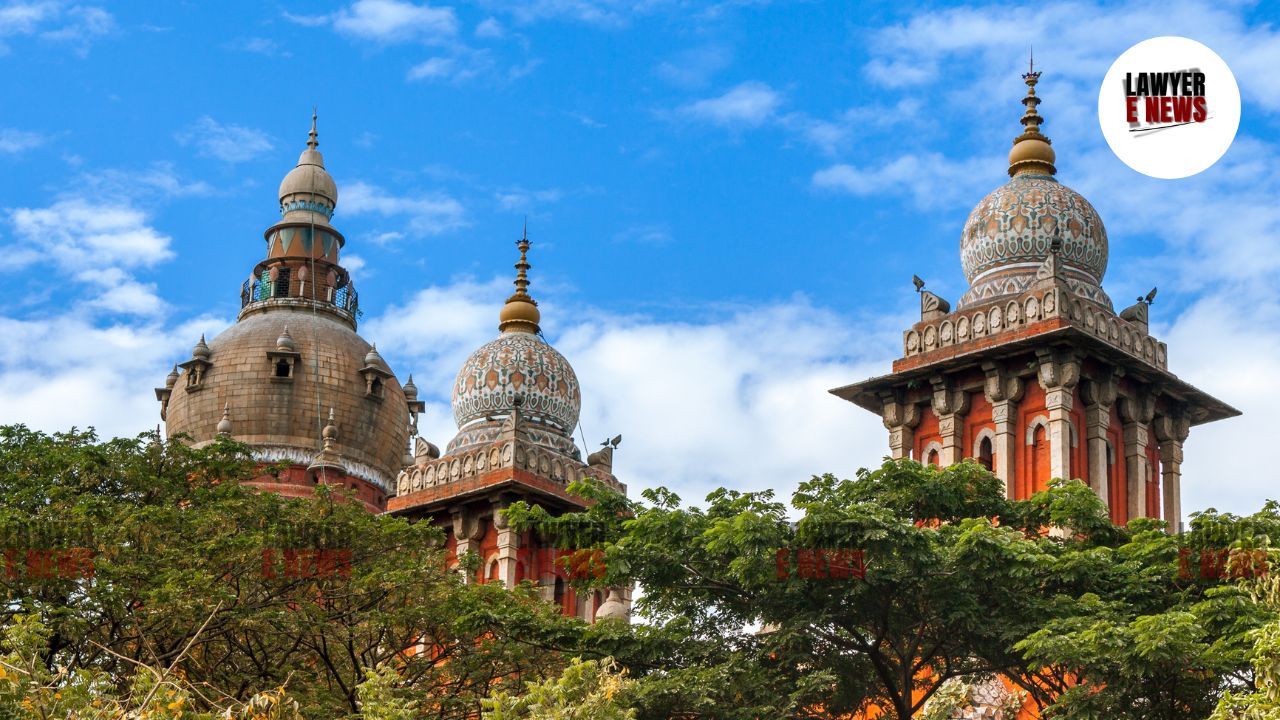-
by sayum
16 February 2026 8:46 AM



The Madras High Court has ruled in favor of senior DMK leader and former Union Minister T.R. Baalu, awarding ₹25 lakh in damages for a defamatory article published by Junior Vikatan on 22.12.2013, while dismissing claims related to an earlier publication dated 28.03.2012 on limitation grounds. The Court held that freedom of the press under Article 19(1)(a) does not grant an absolute right to publish defamatory and unverified allegations, stating that even public figures have a right to reputation under Article 21 of the Constitution.
Justice A.A. Nakkiran, presiding over Civil Suit No. 252 of 2014, observed that the 2013 article falsely attributed statements to the plaintiff, tarnishing his political image and reputation, and noted that the defendants had failed to verify the authenticity of the statements before publication.
"The press has a fundamental duty to report responsibly. Reckless journalism that spreads falsehoods under the guise of free speech cannot be tolerated in a democratic society," the Court held while directing the defendants to pay the damages within one month.
"Right to Reputation is Protected Under Article 21; Press Cannot Publish Unverified Allegations"
T.R. Baalu initiated the suit, alleging that two articles published in Junior Vikatan were defamatory. The 28.03.2012 article suggested that he misused public funds in the Sethusamudram Project, implying that he personally benefited, while the 22.12.2013 article falsely claimed that he referred to Congress leader Rahul Gandhi as a "small boy" during a DMK general body meeting, an assertion the plaintiff denied.
The Court noted that journalists were not present inside the DMK meeting and had relied on second-hand sources, yet failed to verify whether the plaintiff had actually made the statement before publishing it as fact.
"When a journalist admits that he was not present at the event and relied on unverified sources, the publication loses its credibility. Freedom of the press does not extend to publishing fabricated statements without due diligence," the Court held.
Rejecting the defendants’ claim that similar content had been reported by other media outlets, the Court clarified that the plaintiff had the right to sue any publication of his choice and was not obligated to pursue legal action against all media houses.
"Suit on 2012 Article Dismissed on Limitation, But 2013 Article Found Defamatory"
The Court ruled that the 28.03.2012 article was time-barred since defamation claims must be filed within one year of publication. As the suit was filed in 2014, the Court dismissed claims relating to the 2012 article. However, the 2013 article was within the limitation period and was found to be defamatory and malicious.
The Court found that Junior Vikatan had attributed words to the plaintiff without any proof, leading to reputational harm. It held that the publication of baseless allegations not only damaged the plaintiff’s standing in the political community but also misled the public.
Permanent Injunction Against Future Publications Denied
The plaintiff sought a permanent injunction restraining Junior Vikatan from publishing any future defamatory content. The Court declined to grant a blanket injunction, ruling that each publication must be assessed on a case-by-case basis and prior restraint on media cannot be granted.
"While defamation has been established, a permanent ban on future publications would interfere with press freedom. The press has the right to report, but it must do so responsibly," the Court observed.
Defendants Ordered to Pay ₹25 Lakh in Damages
The Court concluded that damages were necessary to deter reckless reporting and to protect an individual’s right to dignity, stating: "A journalist’s duty is to inform, not to defame. The damages awarded serve as a reminder that publishing false statements without verification has consequences."
Directing the defendants to pay ₹25 lakh within one month, the Court further held that the defendants had the liberty to recover the amount from M/s Vasan Publications Private Limited, the publisher of Junior Vikatan.
"Journalists Must Verify Before Publishing; Irresponsible Reporting is Not Protected Speech"
This ruling underscores the balance between press freedom and individual rights. The Court reaffirmed that journalists have the right to report on public figures, but they cannot fabricate statements or publish unverified allegations. The decision sends a strong message against sensationalist journalism, emphasizing that reckless reporting will not be shielded under the right to free speech.
Date of Decision: 04/02/2025
